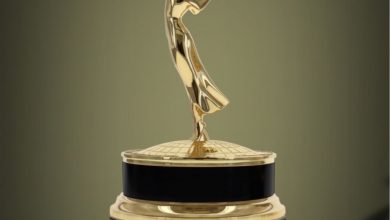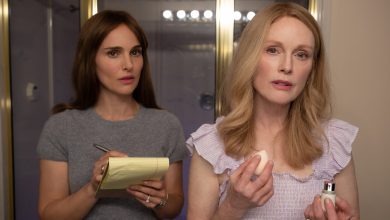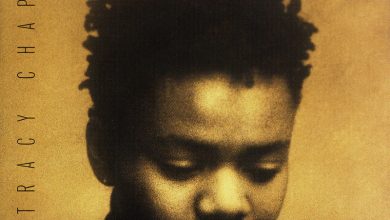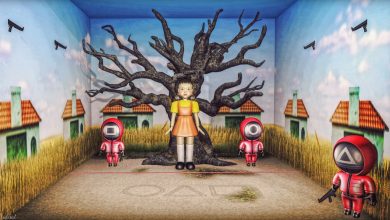‘Captain Marvel’: Feminism Lacking in Intersectionality
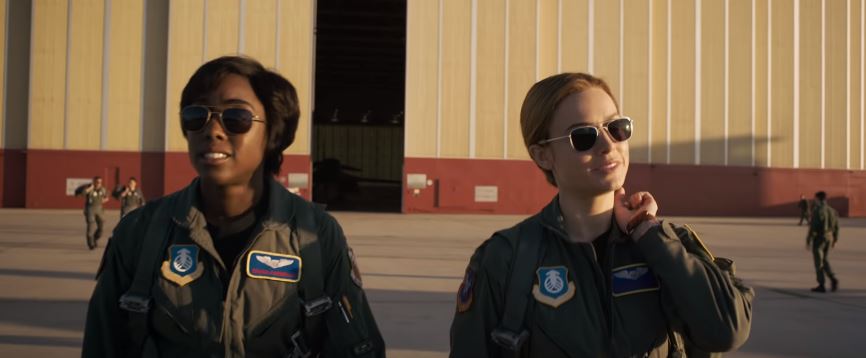
Image source: YouTube. CC BY-NC 2.0.
From the beginning, “Captain Marvel” was actively campaigned by Marvel Studios as a film meant to empower women. In its first official trailer, the phrase “discover what makes her a hero” appears, with the word “her” transforming into “a hero” to conflate Captain Marvel’s identity as a woman with her heroism. A similar trick is pulled in the second official trailer, where “this March everything begins with a hero” was originally “this March everything begins with her.” If it isn’t clear enough that the film’s marketing is trying to capitalize on the concept of a female superhero, the film was intentionally released in the U.S. on March 8th, International Women’s Day.
The film also hasn’t shied away from an explicitly feminist label. Brie Larson, who plays Carol Danvers (a.k.a. Captain Marvel) in the movie, particularly has pushed this angle. In an interview with Entertainment Weekly, Larson commented that, “what 2019 is about, really, is intersectional feminism” when speaking on the friendship between the characters Carol Danvers and Maria Rambeau (Lashana Lynch). An intersectional understanding of feminism requires that we examine all the different ways that people can be oppressed based on their individual identities and how these various identities combine to produce unique forms of oppression. So, with Larson’s statement in mind, we can ask a new question: is “Captain Marvel” really all that intersectional?
Before I jump into some of the criticisms I have of the film, I want to first state that I genuinely enjoyed “Captain Marvel.” I personally found it very exciting, moving, and empowering as a woman. I loved experiencing Carol’s journey to finding herself and becoming the superhero she was meant to be. I’m glad the Marvel Cinematic Universe (MCU) is continuing to give platforms to marginalized communities after finding success with “Black Panther” and “Thor: Ragnarok,” even though all those films were pushed back in their release dates in favor of “Spider-Man: Homecoming.” The MCU has been slow to make progress with diversity both behind and in front of the camera; for example, it took until the 17th film with “Thor: Ragnarok” to have a director of color and the 18th with “Black Panther” to have a MCU film led by a hero of color. “Captain Marvel” marks the 21st film in the MCU, being the first to feature a female director behind the camera and a female hero as the main character.
I also heavily agree with another article on FEM by Chloe Xtina where she points to the film’s endorsement of female friendships, owning your own power, allyship, and girl power. As Xtina also touches on in the piece, the film has a problem with glorifying the military and acting as a propaganda piece; I won’t touch on it anymore since it’s already been discussed, so look to Xtina’s article and this one from Los Angeles Magazine to hear more on the subject. However, “Captain Marvel”’s war propaganda problem exists across the MCU in films like ”Iron Man” and “Captain America: The First Avenger.”
Now, speaking to the film’s racial representation, progress continues to be made with Black characters in the MCU. Nick Fury (Samuel L. Jackson) has great chemistry with Carol Danvers when they team up together as equals. Also, both Maria and Monica Rambeau (Akira Akbar) are great, well-defined characters that show the power of female friendships through their connection with Carol and represent a single-mother household in a positive, non-stigmatized light. As Xtina’s article mentions, this representation is somewhat soured knowing that Monica actually assumed the Captain Marvel mantle before Carol Danvers did in the comics. While Monica’s representation of young Black girls is still important, we could have already had a film led by a Black female superhero in the MCU instead of treating a white woman as the automatic default for female empowerment. Despite this issue with Monica’s portrayal, the film also makes good changes in terms of racial representation by defying the expectation of the Skrulls being an evil alien race. The portrayal of the Skrulls as sympathetic refugees escapes the racist trap of having an entire fictional race be inherently evil, a problem that frequently plagues other mediums like Dungeons & Dragons.
“Captain Marvel”’s real problem regarding race, however, is most evident in Gemma Chan’s role as the blue-skinned Kree warrior Minn-Erva. Her character continues a trend in the MCU of women of color playing aliens with skin painted non-human tones. While Maria and Monica both escape this stereotype, Asian female characters like Minn-Erva and Pom Klementieff’s Mantis from “Guardians of the Galaxy Vol. 2” continue to have their portrayals relegated to these alien characters. Portraying these characters of color, especially women, as ‘Other’ allows Marvel to flaunt an ostensibly diverse cast while simultaneously hiding this diversity to favor whiteness as the norm.
The MCU does feature some representation of Asian actors as human characters, but only with men. These characters include Wong (Benedict Wong) from “Doctor Strange” and Ned (Jacob Batalon) from “Spider-Man: Homecoming.” While these portrayals are important for representation, they also remain in the camp of being mere sidekicks and comic relief to the white male heroes. Marvel Studios has a lot of work to do in order to be more inclusive of Asian characters, especially after the whole Tilda Swinton fiasco. Frankly, the MCU’s representation of people of color needs to improve on a massive scale. Its Latinx representation has been abysmal so far, with Afro-Latina actresses like Zoe Saldana and Tessa Thompson being alien characters and Michael Peña’s Luis from the “Ant-Man” films serving as the only Latino human on the big screen. “Captain Marvel” should have worked to stop this trend rather than becoming part of the problem.
Another major issue within “Captain Marvel” and the MCU overall is its continued denial of any possibilities of queerness. “Captain America: The Winter Soldier” practiced queerbaiting with Steve Rogers (Chris Evans) and Bucky Barnes’ (Sebastian Stan) relationship. Queerbaiting is the act of intentionally implying LGBTQ+ romance and attraction between characters but never letting it come to fruition. The romantic undertones between Steve and Bucky became queerbaiting when heterosexuality was forced into “Captain America: Civil War.” Steve and Sharon Carter (Emily VanCamp) kiss in the film, despite Steve and Bucky having more screen time and chemistry together in the previous movies. The “Captain America” films want to ‘have their cake and eat it too’: drawing in LGBTQ+ people with potential romance while simultaneously keeping homophobic audiences happy by never allowing these queer relationships to exist.
“Captain Marvel” indulges in an extremely similar practice to the “Captain America” movies by repeatedly emphasizing to its audience that its queer-coded characters are ‘just friends.’ Like Steve and Bucky, Carol and Maria have an extremely close and intense relationship with each other. They go even beyond Steve and Bucky by essentially raising Monica together like they’re a couple and she’s their daughter; YouTuber Rowan Ellis’ video “definitive proof captain marvel is gay (spoilers)” goes into this subject deeper in hilarious fashion.
Larson herself has reinforced this ‘just friends’ notion in the aforementioned interview from Entertainment Weekly by saying, “[We wanted] to make that big love — that lost love, that love that’s found again —be with [Carol’s] best friend. To show that, that’s incredibly powerful and gripping, and you could go to the ends of the Earth and fight till the end for your best friend.” Carol and Maria’s relationship is rendered both within and outside the movie as nothing but the typical heterosexual life partners trope. I want to hope that this is not really the case, and that maybe Carol and Maria will be confirmed as a couple one day, but given the MCU’s history of erasing queerness with characters like Valkyrie, I highly doubt it.
And relating to queerness, it’s time to address the subtle hints of transphobia within “Captain Marvel.” This is present in two jokes in the film. The first is when the Skrulls first arrive on Earth at a beach, and one transforms into a human woman before speaking with a deep voice. The second happens when, at the morgue looking at the dead Skrull’s body, Nick Fury purposefully looks under the sheet covering the Skrull to see their genitals so he can know the Skrull’s biological sex. This scene is particularly invasive and distasteful when you consider that the Skrull was a refugee. Both of these moments treat transgender identity as humorous, thinking it’s ‘funny’ if you hear a baritone voice coming out of a female body and if a character looks for the presence of an alien penis.
Both of these punchlines seem especially targeted at trans women, treating a deep voice and the possibility of a penis as defining markers for gender. This equates gender with sex, supporting a line of thinking that tries to invalidate transgender identity on the basis of biological sex. By presenting these moments as something the audience should laugh at, the MCU turns transgender identity into something that can be mocked and doesn’t need to be taken seriously. I don’t think it would be entirely fair to label “Captain Marvel”’s feminism as explicitly Trans-Exclusionary Radical Feminism (TERF), but the movie should have examined the jokes it was telling and considered whether they are, perhaps unintentionally, perpetuating such transphobic attitudes.
The MCU in general needs to rethink how it represents all kinds of marginalized groups—whether it comes to race, sexual orientation, gender, or any other identity—and see how it can improve itself on a intersectional level to avoid reproducing the unique forms of oppression and misrepresentation these groups face. Until that time, “Captain Marvel” doesn’t really embody that “intersectional feminism” that Larson said is the theme for 2019. While its female empowerment is commendable, it remains incomplete when it sticks to the same old MCU formula and alienates a huge number of its audience by sending the message that their overlapping identities don’t really matter.

